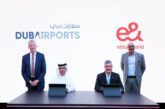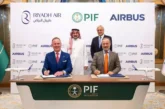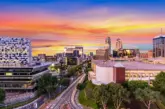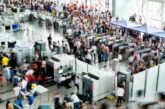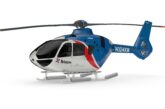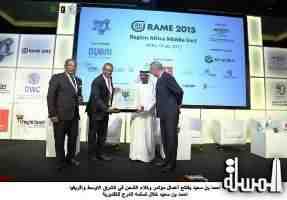
Ahmed bin Saeed inaugurates RAME-2015
ATP- arab tourism portal- Dubai, – The Region Africa and Middle East (RAME-2015) conference of the Switzerland-headquartered International Federation of Freight Forwarders Associations (FIATA) got underway at the InterContinental Dubai Festival City on Sunday with its formal opening by HH Sheikh Ahmed bin Saeed Al Maktoum, President of Dubai Civil Aviation Authority, Chairman of Dubai Airports and Chairman and Chief Executive of Emirates Airline and Group.
Hosted by UAE’s National Association of Freight & Logistics (NAFL), a FIATA affiliate, the two-day conference has attracted over 500 delegates from the Africa and Middle East, India, Pakistan, Sri Lanka and Bangladesh, including the head honchos of leading freight logistics companies and organisations.
Founded in 1926, FIATA is a non-governmental organization that today represents an industry covering approximately 40000 forwarding and logistics firms, employing around up to 10 million people in 160 countries. FIATA has consultative status with the UN Economic and Social Council (ECOSOC), United Nations Conference on Trade and Development (UNCTAD), and UN Commission on International Trade Law (UNCITRAL).
The global body of freight and logistics industry will review the current status of the industry globally in general and the Middle East and Africa regions in particular and chalk out the future road map. DP World, Emirates, Dubai World Central, Jebel Ali Free Zone Authority (Jafza), Dubai Chambers, Etihad Airways, Freight Systems, TT Club and Newage are among the sponsors.
David Phillips, President of NAFL, said: "The conference is based upon the Trade Corridor that exists between the Indian Subcontinent and Africa, via the Middle East, and in particular Dubai and the UAE. This Trade Corridor is vibrant and exciting. RAME is by itself a very vibrant business corridor, and the UAE and Dubai has been the traditional hub that bridges these regions and facilitates trade. India is now a trade power house, and when included in this ‘Trade Corridor’ makes the region, possibly the most exciting area globally. Africa is the fastest growing economy and this conference provides delegates with the opportunity to meet potential partners.
Basil L. Pietersen, Chairman RAME, said: " RAME-2015 is a lot different than the others regional meetings as all logistics players and freight forwarders in the South Asian subcontinent, with a focus on India, Pakistan, Bangladesh and Sri Lanka, have been invited. The business environment between these regions is vibrant and full of opportunities. NAFL has worked tirelessly to put together a well-balanced debate agenda which is sure to highlight clear actions for the industry."
Francesco Parisi, President of FIATA, said: "RAME is one of the fastest developing areas in the world in terms of trade growth and logistics, consequently our industry in this area is faced with challenges connected with growth. FIATA being a dynamic federation it has to hear what our members need directly from the local practitioners: the regional field meetings are the best opportunity for us to listen and understand and, as it happens, to promote the image of FIATA and its knowledge base within our constituents."
Sultan Ahmed bin Sulayem, Chairman of DP World and Ports, Customs and Free Zone Corporation, delivered the keynote address, highlighting the strengths of Dubai as a logistics hub and the growth opportunities that it has opened for the region to improve and enhance trade in goods and services. He said India and Africa lack infrastructure facilities and hence offer immense investment opportunities to boost up the infrastructure.
A stellar line-up of speakers utilized the first day of the conference to highlight the synergies and business potential that exists in the Africa and Middle East regions and how countries in other regions in near and far could benefit from them, from the freight logistics perspective.
Themed UAE-Dubai- The gateway between South Asia and Africa, the first session of the conference was addressed by Hassan Al Hashemi, Vice President of International Relations at Dubai Chamber of Commerce and Industry, who highlighted the growing importance of Dubai as the global business and logistics hub.
Mahmood Al Bastaki, CEO of Dubai Trade, a subsidiary of Dubai World that offers integrated electronic services from various trade and logistics service providers under a single window, said the UAE was considered as a safe haven because of a proactive pro-business government with the most transparent business regulations in the region. Dubai, he said, was ideally placed to serve the Middle East, North Africa and South Asia (MENASA) region whose combined GDP in 2013 was more than $5.8 trillion.
He said the World Economic Forum Global Competitive Report 2014 has attributed the high quality of roads, air transport and ports infrastructure as the factors behind Dubai emerging as the Trade and Logistics hub. The UAE has been ranked eighth in the world and best in GCC for Trading across Borders and Best place in the MENA region to start a business.
He remarked: "There is a greater demand for Dubai’s logistics sector. The World Expo that the UAE will host in Dubai in 2020 offers great opportunity for the entire region. There is a shift of distribution centers from Europe to Dubai to serve the MENASA economies."
Yousef Al Hashemi, Senior Manager of Dubai Customs, spoke about trade facilitation through innovation and listed out the initiatives and policy measures taken by the government towards this end.
Mohsen Ahmad, Vice President of Logistics District at Dubai World Central (DWC), the world’s first fully-integrated aerotropolis with Logistics City as its key component, listed out the importance of MENASA region in the global trade flows and how this vast region holds the key to the future growth of global business in various domains, especially logistics and aviation. Adil Al Zarooni, Senior Vice President –Sales at Jebel Ali Free Zone Authority (Jafza), provided insights into the facilities offered by Jafza for global trade flows and how it has made a meaningful impact in the global logistics and trade domains.



